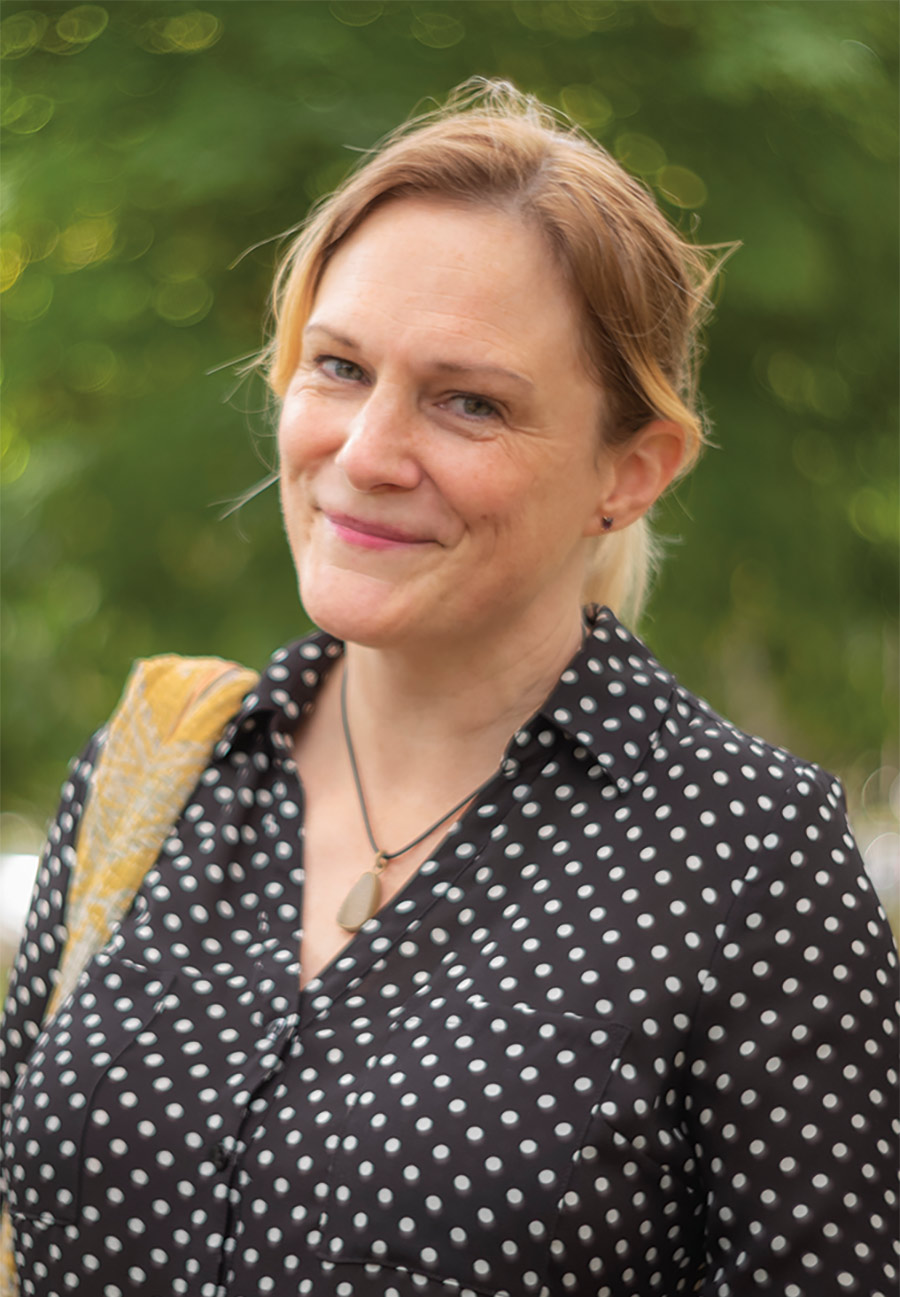
Dizzying
and Delicious
We are communal, embodied creatures who need to gather and tell stories together. That is how we build space in our hearts for ambiguity, disagreement, and nuance.
In what ways have you pivoted in your role during the pandemic?
Making theater, which is the quintessential ephemeral art form, “written on the wind,” requires being present in the same space and time with our collaborators and our audience. Finding ways to mimic or approximate this sense of sharing space on Zoom is challenging. We have been experimenting with available technology, looking for ways to communicate performance with impact. We’ve been making use of film, video, radio plays, and, of course, Zoom. It’s inspiring to me how much comes across, though nothing can replace the complexity, density, and excitement of live performance.
How does theater help (during times of crisis especially) to give shape to conflict, grief, pain, isolation, or anger brought about during upheaval?
The truth is we are all in this together, though we may feel ourselves to be more or less insulated from the state of the world. Even though we may be in denial about our shared predicament on this planet, some part of us knows the truth — that our stories and our fate are tied to each other. Theater lets us experience the terrifying truth of our interconnectedness with the comfort of company. We tell each other’s stories and name each other’s experience to expand our compassion and curiosity, to inspire us to take better care of each other. This kind of seeing is better for the collective and for us as individuals. The “escapism” that people crave and that drives us to read novels, watch live performance, even to watch Netflix is, in part, a response to feeling trapped in our own identities and in our own stories. We are empathetic, imaginative beings who thrive when we are relating to stories other than our own, reckoning with our actual interdependence on each other and our planet.
What first drew you to become interested in theater and the arts?
I was a shy, strange kid, and I felt welcomed in theater classes and communities. I could be playful, let my weird self be seen, feel less alone in the world. And I was inspired by how much of my interests and curiosities came into the work. I don’t have to compromise or to put any of myself “away” to do my work as a director. Theater requires research, so the part of me that loves libraries, books, and scholarly rabbit holes is fed. Theater requires an ear for rhythm and an eye for what is arresting or beautiful, so my artistic self is nourished. And theater is fundamentally collaborative, so my interest in human behavior and my hunger for community are included as well. When I realized that theater demanded all of my brain, my heart, and my body, that it mobilized all my intellectual and creative resources, I knew it was the right path for me.
Several years ago, we did A Midsummer Night’s Dream in Crum Woods. The cast, singing songs and holding lanterns, led the audience down a path through the woods to a secret wedding tent. It was November, and so it was cold. We filled the tent with heaters, rugs, pillows, and blankets. We served cookies, hot chocolate, and cider. People cuddled up with each other and watched as we opened one side to the night woods. Because our “backstage” was expansive, performers could enter chasing each other across fields (there’s a lot of chasing in that play), or swinging down from branches. It was dizzying and delicious.